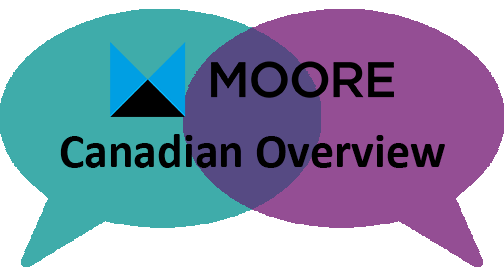 This article is from the quarterly Canadian Overview, a newsletter produced by the Canadian member firms of Moore North America. These articles are meant to pursue our mission of being the best partner in your success by keeping you aware of the latest business news.
This article is from the quarterly Canadian Overview, a newsletter produced by the Canadian member firms of Moore North America. These articles are meant to pursue our mission of being the best partner in your success by keeping you aware of the latest business news.
When you are running a restaurant, it can be easy to focus on the food and hospitality and brush off accounting as a secondary task. Like any business, however, you are looking to gain and maintain a profit, and good accounting systems are crucial in order ensure your success. Here are our tips to help you on your way:
Choose the right accounting software. Not all accounting software is created equal. The right system should not only help you track your sales and expenses, but should also help track your inventory.
In addition, choose the right POS system that, ideally, is integrated with your other accounting software. This saves the additional step of entering POS information into your accounting software and will help you keep your reports up-to-date in real time.
Constantly monitor the most important reports. Many different reports will help you manage your business, but the most important are typically your food inventory costs, food sales, beverage sales, and operating expenses. Running these reports on a monthly basis may not be sufficient; you may find it most beneficial to maintain these records and analyze them on at least a weekly basis. A detailed P&L and breakeven analysis are also critical to help you understand your costs and how to improve your profits.
Be aware of industry benchmarks and KPIs. Understanding other businesses is as important as knowing your own business in the competitive restaurant industry. Benchmarks help you to know where you stand and where you can improve in relation to your competitors.
Stay on top of paying your expenses. The restaurant business moves quickly and it can be easy to fall behind if your payables are not organized. Ensure that your bills are cycling efficiently for cash flow purposes, but never make the mistake of paying late. A vendor could refuse delivery if they have not been paid on time, which could be a disaster when it comes to fresh food inventory.
Use a payroll service provider. Many restaurant managers monitor hours and wages very closely. When it comes to actually paying staff, however, manually keeping track of benefits and payroll deductions can become quite time-consuming, and possibly open you up to liability in the case of payroll errors.
Consult a professional accountant. The right accountant will have expertise in the restaurant business and will help you to analyze your financial information and provide guidance.
Contributed by
Carly Matheson, CPA, from
DMCL. This piece was produced as a part of the quarterly Canadian Overview, a newsletter produced by the Canadian member firms of Moore North America.